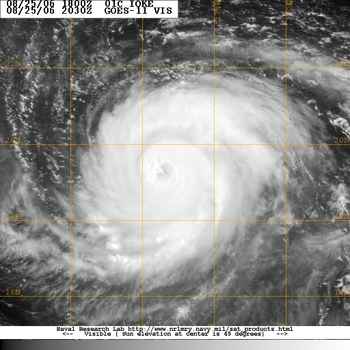
Aurora in Alaska.

Hope in a Darkening Age... news, comment, arts, ecology, wisdom, obsessions, the past, the future... "THE END OF ALL INTELLIGENT ANALYSIS IS TO CLEAR THE WAY FOR SYNTHESIS."--H.G. Wells. "It's always a leap into the unknown future to write anything."--Margaret Atwood "Be kind, be useful, be fearless."--President Barack Obama.




Housing and rebuilding are particularly obvious failures, as is continuing uncertainty about the city's safety in future storms. We looked at images from New Orleans and the Gulf Region during the initial crisis--families stranded on rooftops, incarcerated in the dome, starving and sick--and asked, how could this happen in America? Now a year later we look at New Orleans, still a devastated husk of its former self, and ask the same question.
The Independent suggests more of what happened:
A year after Hurricane Katrina, the reconstruction of the devastated Gulf coast is being severely hampered by waste and inefficiency overseen by "disaster profiteers" who are making million of dollars, according to a watchdog group. The group claims the inefficiency - along with the companies' political connections - follows a pattern similar to what happened in Afghanistan and Iraq.
With much of New Orleans still in ruins and its population half of what it was before the hurricane, a new report claims millions of dollars has been squandered by wasteful processes that have seen 90 per cent of the first wave of reconstruction contracts awarded to firms outside Louisiana, Mississippi and Alabama. Local firms have been frozen out while immigrant workers have been exploited and often unpaid.
Widespread corruption is stll being documented, estimated so far at $2 billion. FEMA itself seems to be responsible for most of the waste. Here are some of the ways the federal response has failed:
Emergency Assistance: A June report by the Government Accountability Office concluded that FEMA wasted between $600 million and $1.4 billion on "improper and potentially fraudulent individual assistance payments."
Cleanup: The job still isn't done. More than 100 million cubic yards of debris have been cleared from the region affected by Katrina. So far the government has spent $3.6 billion, a figure that might have been considerably smaller had the contracts for debris removal been subject to competitive bidding. Working through the US Army Corps of Engineers, FEMA gave each of four companies contracts worth up to $500 million to clear hurricane debris. This spring government inspectors reported that the companies - AshBritt Inc. of Pompano Beach, Fla., Phillips and Jordan Inc. of Knoxville, Tenn., Ceres Environmental Services Inc. of Brooklyn Park, Minn. and ECC Operating Services Inc. of Burlingame, Calif. - charged the government as much as four to six times what they paid their subcontractors who actually did the work.
And as hurricane season heats up, FEMA admits it is understaffed.
Lester Brown of the Earth Policy Institute suggested last week that the estimated 250,000 Katrina evacuees who may never return to their former homes should be considered "climate refugees," a category that will grow as the Climate Crisis takes hold. "What we're looking at is the potential not of displacing thousands of people, but possibly millions of people as the result of rising seas and more destructive storms in the years and decades ahead if we don't move quickly to reduce CO2 emissions," he said.
That's strong motivation for working to Stop It, but also for getting serious about Fixing It--understanding the dimensions and consequences. Seeing what happened in New Orleans doesn't inspire confidence, especially since quite a few climate refugees are likely to be poor people and people of color. One need not buy into conspiracy theories about deliberately exploded levees (though in fact levees were deliberately breached in the past in poor black areas of New Orleans to relieve pressure on rich white areas) to understand that had Katrina hit Palm Beach, things would be much, much different today.
We're going to be hearing a lot more about Katrina in the coming days, and we should.






